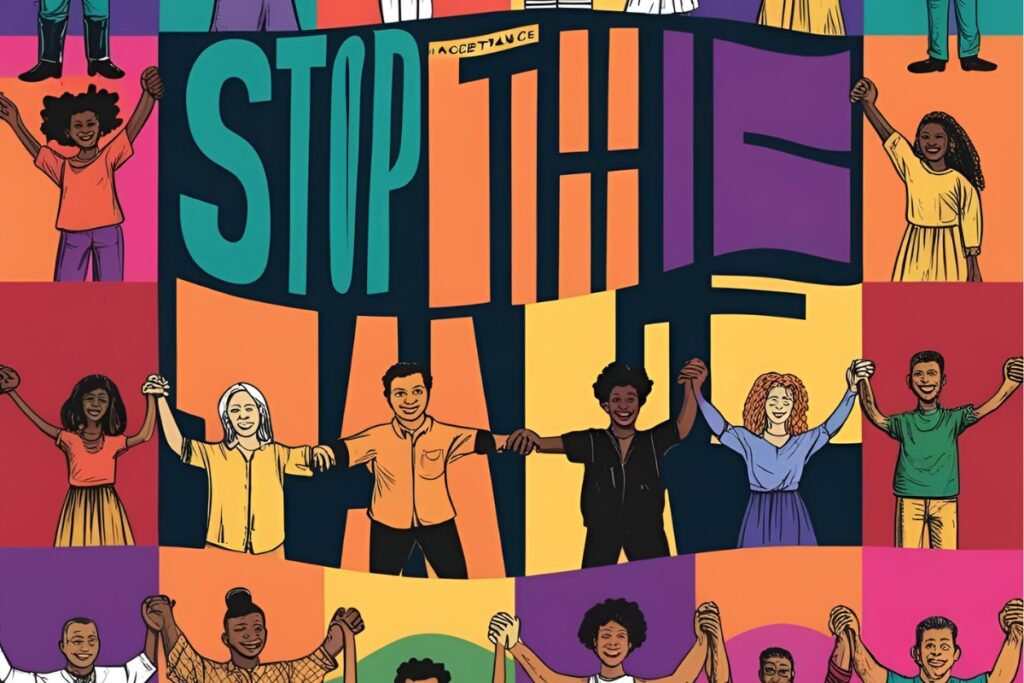Leaders representing diverse, victimized communities urged California not to end its funding for initiatives aiming to combat hate crimes.
“If there is ever a time when we need support, it is now,” said Manjusha Kulkarni, executive director of the AAPI Equity Alliance. “We have an administration that is openly anti-immigrant, anti-Asian anti-Latino, anti-Black and they are using their power against our communities in multitude ways. Stop the Hate Program is one way we can fight back.”
Kulkarni criticized Congress for largely abdicating its responsibilities, allowing the current administration to dismantle government institutions and scapegoat immigrants for the nation’s problems.
“It is absolutely necessary to re-fund the program to benefit the lives of millions of Californians,” she said.
The COVID-19 Hate Crimes Act was passed in 2020 due to a surge in hate crimes targeting the Asian community during the pandemic. In 2021, 173 community-based organizations and ethnic media received grant funding from the state for initiatives seeking to inform the public about hate crimes and incidents. A total of $91 million was allocated, with $5 million carved out for ethnic media.
Funding for media ended at the end of 2024, and funding for CBOs will end this year.
Hate Crimes Surge in LA
According to the Los Angeles County Commission on Human Relations, hate crimes dramatically increased 45% from 930 in 2022 to 1,350 in 2023. This represents the largest spike in the history of this report and surpasses the 1,031 hate crimes from 2001 when the Sept. 11th attacks occurred.
Breaking down the numbers, the 2023 report revealed a disturbing increase in hate crimes for all groups, including transgenders, Asians, Latinos, Jews, African-Americans, and LGBTQ. Also noted are the 209 crimes linked to White supremacist ideology, the highest figure ever recorded.
Robin Toma, Executive Director of LACCHR, stated that these figures are alarming as they are the agency’s highest reporting levels of hate crimes in over 40 years.
“It’s not against any particular group, but rather all the groups that, year after year, are the most affected by hate crimes in our county: African-Americans, Latinos (who also receive the majority of crimes with hostility expressed against immigrants), Jews, and gays and lesbians (LGBTQ+), especially transgender women,” he said.
“Economic, social, and political chaos, daily news of tariffs, an unstable economy, and the federal focus on immigrants, all create conditions that fuel pre-existing anti-immigrant prejudices,” said Toma.
“It’s so important to have everyone’s participation, especially nonprofit community groups. Without them, it will be difficult to overcome hate. We have the power to be a leader in reducing hate crimes because we have a system for knowing where hate crimes are occurring, with the support and activism of everyone—schools, businesses, residents, parks, street vendors, and churches,” he said.
Black and Brown People Not Welcome
Rick Callender, a board member of the National Association for the Advancement of Colored People, addressed the concerning increase in hate crimes against African Americans and Latinos. He noted that these incidents are particularly prevalent in schools: 10 were reported in March alone.
With the dismantling of many federal government institutions, it will be more challenging to rely on the Department of Justice to investigate hate crimes, said Callender. Community groups will need to take the initiative to combat hatred and safeguard their communities.
If California decides to cut the Stop the Hate Program “It is going to be a significant setback in our ability to serve the people better. Our legal redress program is 100% dependent on these funds. Our youth leadership program and the Ethnic Media collaboration depends on it also. This is an investment we cannot roll back,” said Callender.

